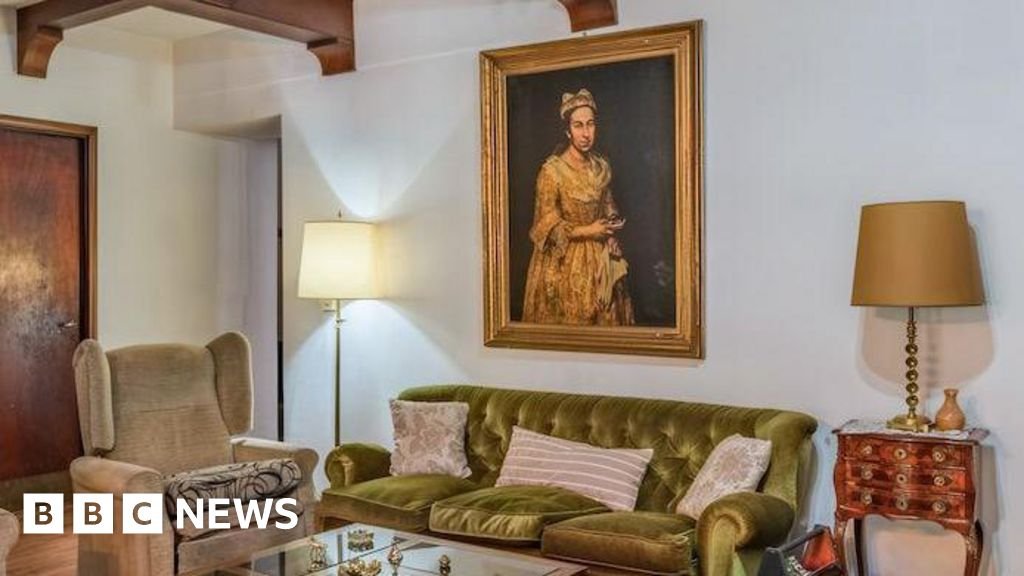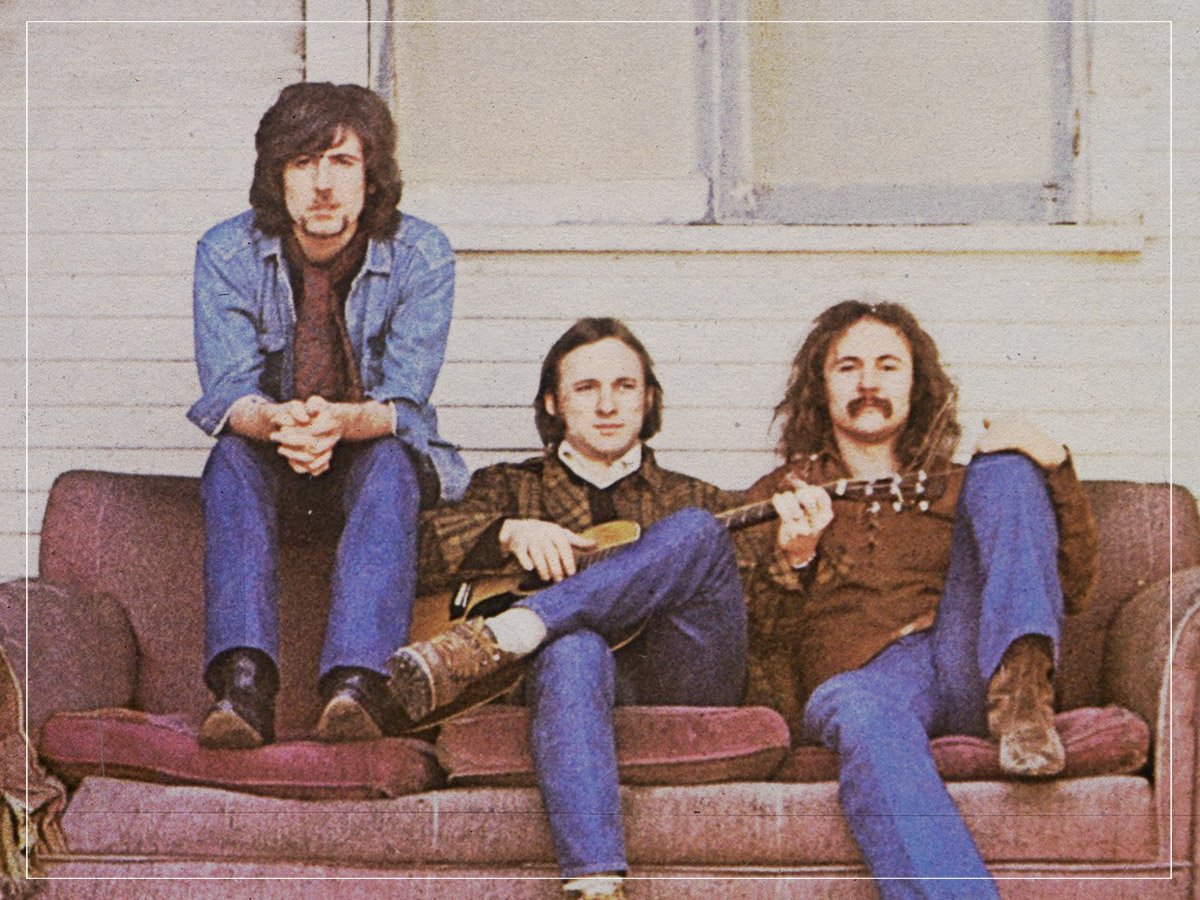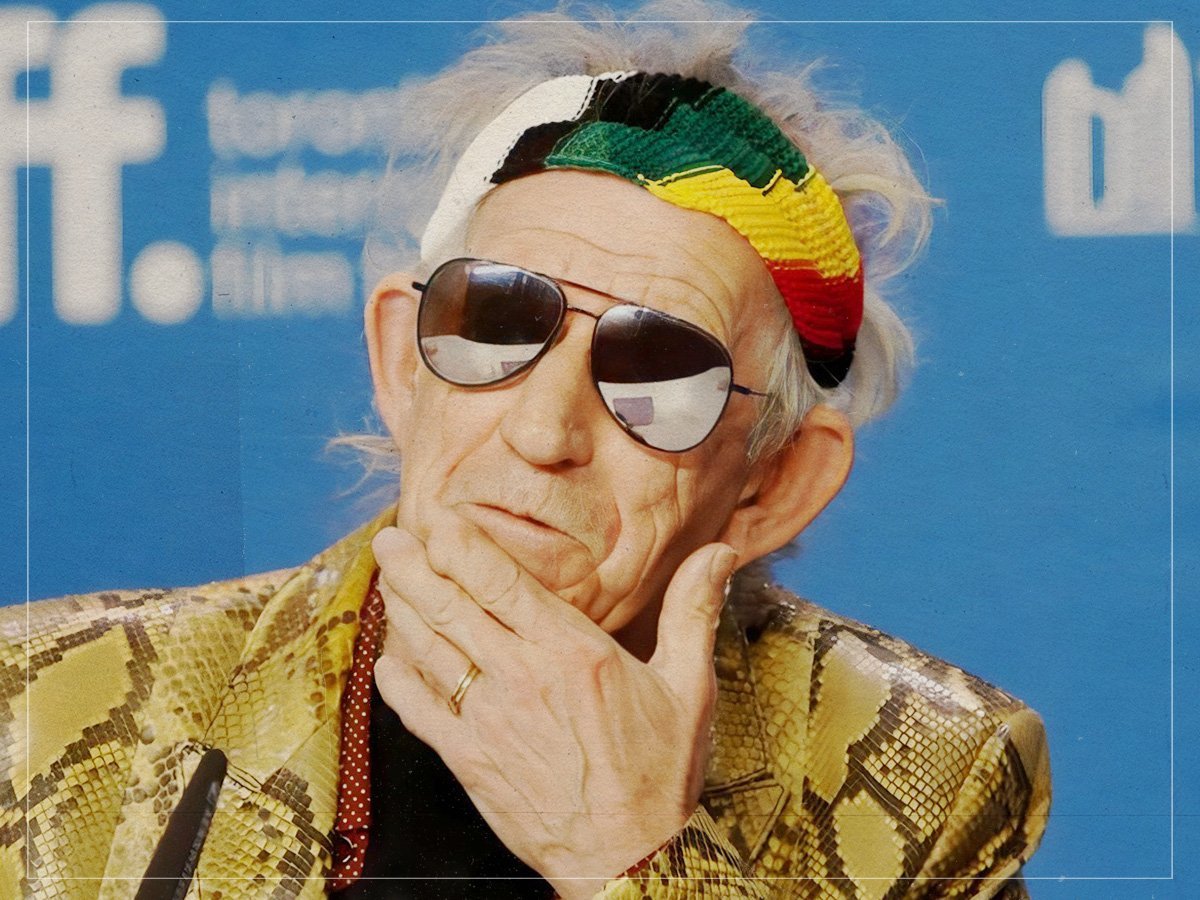She is a tour de force at 84 – a force of nature for good for thousands of students at the High School and for the arts in Enniskillen going right back to 1969.
Listening to her for almost three hours is like being on a bright carousel among the painted ponies of her Technicolour world of art.
That eclectic world is filled with artists of all genres, poets, musicians, and singers- a cast of hundreds who enjoyed her and her late husband Gordon Johnson’s hospitality at Drumclay House since the early 1970s.
Toni’s home is also full of family photographs-timeless watercolours of the past and the work of Gordon, herself and her most versatile family as well as Gordon’s wonderful unique models
She was part of an amazing double act with her soulmate Gordon.
“The first time I saw him he had a teacup on his head,” said Toni.
That was in 1958 and the beginning of a great romance.
Gordon sadly passed away in 2012 but he is still by her side in spirit and his ashes lie in a silver urn in her warm welcoming living room.
Toni and Gordon taught art in Enniskillen High School and the Collegiate respectively- for over 30 years and taught their pupils well and quite a few entered the world of art and the arts as a result of this exceptional couple.
Toni has also been at the centre of pantomimes, float parades and the famous FLive Enniskillen Festival for many years.
But there are other facets to this extraordinary lady as she was awarded the MBE in 2020 partly for her services to the arts but also for her words and actions of comfort to the wounded, bruised and the broken whose lives were shattered by the bomb in Enniskillen on Remembrance Sunday in 1987.
It was a terrible time for the children who survived the blast as they bore deep scars both physically and emotionally -but Toni took them by the hand to help them in dark days.
By nature, she is an egalitarian with a strong sense of justice and is heavily involved in Save Our Acute Services she has a collection of media stories from various outlets in the battle to save emergency services at the SWAH.
But Toni is not merely an eloquent advocate-she is also a doer as she helped to get thousands of posters printed for the campaign for saving the services at the SWAH.
And she has pretty terse words of advice for the DUP on their return to Stormont which roughly translates as either shape up or ship out.
Toni also spoke frankly about the loss of Gordon and how a part of her died with him.
A resident of Enniskillen, she holds her family as her greatest love, proudly acknowledging Rachael, Matthew, Katie, and Jason for their accomplishments in art, disability teaching, and journalism. She possesses a unique gift for storytelling, akin to a Gaelic seanchaí, effortlessly weaving colourful narratives that immerse the listener into the tales of her life and the town she adores.
Born in London in 1939 to Jo Mooney, Toni grew up in a family where creativity thrived. Her grandfather, Ernest Mooney, a skilled engineer from Emyvale in County Monaghan, had a significant impact on her early years. Despite Toni’s lack of memories of Ernest, she fondly recalls her mother, Jo, a forward-thinking storyteller whose creative tales fill boxes in their home.
Toni’s artistic journey began in York, where she attended a convent school and later pursued art at York School of Art in 1957. There, she met Gordon, three years her senior, who became her husband in 1961. After living in various challenging conditions in Leeds, they moved to Enniskillen in 1963, seeking cleaner air for their ailing daughter Rachael. However, due to their religious differences, they were denied an Education House, contributing to Toni’s view of it as a denial of civil rights, influencing her involvement in the Civil Rights movement later.
Their initial residence was Lenihan House, a vibrant community opposite the Graan, where interesting individuals, including Margaret Martin and Tommy Kelly, lived. A year later, they bought a house in Derychara near the High School. Drumclay House, perceived as derelict, caught their attention in 1973, and with a loan from the bank manager, they transformed it into their home.
Toni began teaching at the High School around 1972/73, spending 30 years there and cherishing the sense of community among former colleagues.
Her involvement extended to organising a memorable annual pantomime at the school, providing a platform for non-academic students to showcase their talents. Toni emphasised the positive impact on students’ confidence and self-esteem. Integrated education was another cause Toni actively supported, facing opposition from the State and the Roman Catholic Church. The efforts of individuals, including Toni and her husband, contributed to the establishment of the Integrated Primary School.
Gordon Johnson, Toni’s husband, played a role in fundraising for the school, building a unique hydro bike. Toni’s entry into the Enniskillen arts scene coincided with her husband entering an art competition for the Gallagher Prize during their time at Lenihan House. In summarizing her journey, Toni’s life in Enniskillen reflects a rich tapestry of family, community, education, and the arts.
Tommy Kelly, the father of John Kelly, also entered and they won first and second prizes.
“We got involved in the festivals first and they were a wonderful community thing.
“The late Raymond McCartney, Terry McCartney’s dad was a by-word here and was involved in everything he ran the festival in the 1970s and 80s and they also had a bar.
“He was a great man and also involved in vintage cars and had a great way with people.
“You were never being told what to do as you just knew what to do and both of us were involved.
“We did the Float Parades and people today would die if they saw them as they went against every rule of health and safety.
“You would have a huge articulated lorry with about 50 kids on it and all doing stuff and they would fall off the lorry and people would just lift them back on.”
Toni does a lot of drawing and colouring books for children and her work is also in this unique house.
Toni and Gordon did everything together “except fishing.”
“He was very good with people and people liked him a lot and he was also very good in his head, and he could spend days on his own working something out.
“He was an excellent artist and very good with the girls in the Collegiate.
“Gordon could identify when they were upset, and he could talk to them about things.
“And he was a great dad to the children and could always relate to them.
“Gordon was also involved in drama in Enniskillen, and he was in the musical “The King and I” with his colleague and friend Roy Cathcart and he also built the sets.
“He also did the first revolving stage, and he was stripped to the waist for his part in “The King and I” and I had to paint on his six-pack before he went on stage, and he was a very funny man.”
Gordon is perhaps best known for his famous train “Myrtle” which earned him the title of “The Magical Imagineer”.
And then, Toni springs up from her chair and brings this writer outside in the garden for a look at her husband’s iconic creation.
“Myrtle was a train, and we got some iron wheels while we were down in Cork visiting Rachael and we bought them back and on the way back he said he thought he would make an engine and that was Myrtle,
“And he cast people’s faces who would be on the train after he made a plaster and he put straws in their nostrils so they could breathe, and they had to lay on a table for seven minutes.
“We have faces on the train and he made ‘Myrtle’ out of all sorts of things that people throw away and ‘Myrtle’ is in the Buttermarket.
Gordon sadly passed away in 2012.
“He had cancer and he got over the cancer which was wonderful because I remember going to a doctor who outlined all his treatment.
“And when the doctor asked if Gordon had any questions, he asked:
“Can I book my holiday in the South of Ireland for fishing in September the doctor said yes-so Gordon went on with his treatment he got over that but then he had a stroke and things went downhill after that.
“And the saddest thing of all was he was drawing one day, and he called me in and he said to me this is wrong isn’t it and it was a head he was doing.
“Something was happening to his brain, and I was wondering what to say and I said it was wrong and that was it and he did no more drawing after that and it was very sad, but we had a wonderful life and wonderful memories.
“And he never said who are you and that was the thing I was terrified of, and he did not get Alzheimer’s.
“And he died in his sleep- in bed which was lovely.”
Toni added: “It took a long time to deal with his passing and there were different situations which made me sad, and we had a Retrospective for him which was an exhibition here with all the family in the Museum and the family organized it for me there.
“That was lovely, and it took a while.
“One of the things that is kind of strange when somebody dies and if you are as close as Gordon and I were part of you disappears and you have to get it back.
“That sounds strange, but it is not.
“You don’t need part of what is you anymore because the person who has died has it and you work almost as one.
“And I don’t mean practical things like being able to hammer a nail in mean things about yourself and it is not even really coping with things.
“It is a part of you that disappears, and you have to get that back so that you can be yourself again.
“And that takes a while before it happens because my spirit was enmeshed in his spirit and there are little bits you have to get back again to be you.
“It is subliminal, and we were very close, and it was an exciting life.”
In 2020 she was awarded a well-deserved MBE.
“It was for the arts and a lot of it was down to Gordon as well and also to do with the bomb in Enniskillen in 1987.
“We heard the bomb going off here and the late Jimmy Byrne went flying up the road to see what happened and when he came back, he told us, and we went out and he told us what had happened.
“We knew that loads of the children we had taught were down there and they had been laying wreaths and we did not go down there.
“On the Monday, the day after the bomb, all the children who were walking down Belmore Street did not look down-they were all just looking ahead.
“They came into school and there was a 90 per cent attendance in school that day.
“The children were very quiet.
“Ronnie Hill, who was the Principal, was taken off to hospital and Graham Ross’s son’s face was badly injured.
“The children wanted to be in school-somewhere they felt was safe and staff were wonderful with them.
“Vic Outram, who was vice principal, said they would have to deal with this as best as we could but to make sure that when the children went out of class anywhere to make sure that they carried a key fob with them so that they had to come back to you because you might be worried about them running off as they were in a very vulnerable state.
“He said the children were feeling safe in the school.
“It was a terrible day and a lot of the children from the High School had been hurt.
“One little girl came in a few days after the bomb and she threw the door of my art room wide open and she said there was a newspaper in this school and they have a photograph of me on the front page and I never said they could have the photograph there.
“I made her sit down and then we went up the corridor and her neck had been hurt and went up to the staff room and I gave her the paper and asked her what she wanted to do with it and there was a photograph of David Stewart who has one of his children under one arm and the other by the hand and this wee girl is walking beside him and she has a big piece of glass in her neck.
“She took the paper and tore it into tiny bits threw it in the bin and burst into tears.
“So, I made her sit down and got her a cup of tea and I said to her to talk to me about that day.
“And she asked me if she could tell me all about what happened on that day, and I said yes.
“We did that and that child has never forgotten that and neither have I and her son is 16 now I met her at a thing at the college and every time she sees me she gives me a big hug and we both know what it is about.
“So, we dealt with these children as if they were our children and there was no counselling in schools in those days and it was amazing.
“I went to see Graham Ross’s son in the hospital and gave him a set of water-coloured pens and I asked him to get a mirror and do a painting of himself as he was in my Art class.”
She added: “There is an amazing man called David Bolton who lives in Enniskillen, and he was one of our school’s social workers and a lady called Kate Doherty, a teacher at the Collegiate and myself and we started a group to work with the people who were at the Cenotaph on that day and it was trying work.
“We brought people in from Belfast like the Samaritans and there was a lot of understandable anger and I brought John Maxwell, who had lost his son Paul, in to talk to them as well and he is a lovely gentle person.
“After John’s boy died, he said he wanted to meet two of the men who were involved in the Mullaghmore bombing in 1979 and he said he wanted to look at them.
“One of them met him and John said he had to forgive them because if you don’t it turns you into a different bitter person.
“So John wanted to help the survivors of the bomb and there was one very angry man.
“So it made them say things they would not have said, but they had to say and they were all together and they were all together, all victims in various ways and it was a terrible angry meeting- a lot of tears but some relief too.
“I went out of the room, and I burst into tears and when I met John he said it was much worse for the Enniskillen survivors of the bomb than him because he had been through all of that.
“He said he could see that speaking out was painful for the victims, but it was cathartic.
Toni and the other teachers continued to work with the children who survived and she remembers one student who came up to her and said to her they wanted to go down and see another boy whose mother had been killed in the bomb because he was “their friend.”
“I said if this was an ordinary death you would be going anyway and when you get there, you will know whether it is alright to go in or not.
“I never heard anything about that since, until about three years ago when there was a remembrance and quite several people had come back for it.
“And the boy who had lost his mother told me that he remembered that day so well and was so happy that I had sent the girls down to see him as he was just standing there, and he did not know who to talk to or what to look at and suddenly all those girls hugged me, and it was lovely.
“So, a lot of that went on and I worked with Social Services with the school.
“We also got the children to write about what happened in Enniskillen on that day right from the minute they got up to everything that happened.
“That was very therapeutic for them and the little girl with the glass in her neck said she looked down and my auntie had the same shoes as me and they were shiny patent shoes and then there was a bang, and all these little bits of stuff came down like that.
“The MBE had to do with the arts in Enniskillen as well.
“That was part of the background to the MBE and I remember when the Omagh bomb happened in 1998 David Bolton, Kate Doherty and I went out to the schools to tell them how we had coped with the Remembrance Day bomb in 1987.
“I hesitated a bit about the MBE as it was kind of counter to what I believed in.
“It came from people who knew me very well and it was an accolade to Gordon as well as we were a pair.
And it was presented by Lord Brookeborugh and I went there with my good friend Noelle McAlinde for it along with my children Rachael and Jason.
“We could not go to Buckingham Palace as Covid was here so we had it in Fermanagh which was nice and Lady Brookeboro made us tea.
“The house was not full of servants or anything.”
Toni also has a strong social conscience and interest in civil rights.
“My mother was always very interested in everybody, and the class never came into it, and it was all about having an interest in people.
“I remember her saying that there were two gypsies who came to the door and one of them called herself Queen Anne and I thought how brilliant was that.
“Her mother told her that she had some petticoats that the other woman might like.
“But the other woman said not unless they are silk.
“And how brilliant was that and so what if she liked silk and why should it be just the upper classes who liked silk?
“My mother was an egalitarian and I don’t like things that are unfair or treating people in a particular way.
“I don’t like being told what people are like before I meet them because it is all about how you are with people.
“If you take tablets that don’t agree with you it is probably because it does not agree with your inside and I like people because I like them not because they are Roman Catholic or Protestant.
“In England, you don’t have that, so I did not have that until I came here when I was around 22.
“I don’t find Enniskillen divisive, and I always talk to everybody as my granddaughter Jessie keeps reminding me.
But she is critical of the lack of women in politics.
“I have to say that when you see so many men in the House of Commons talking and Stormont (when it sits) and women doing something useful that shows up a huge imbalance and I find that galling.”
Toni offered direct advice to the “procrastinating” DUP on devolution. She suggested a clear ultimatum: “Bring all parties into Stormont and ask if they can collaborate to run the country.
“Any refusal results in expulsion, with no room for excuses.”
She added: “Get on with it, and if the DUP don’t play ball they are off the pitch as long as they know what the consequences of refusal are beforehand so there are no excuses.”
When asked what Enniskillen means to her she said:
“It means everything, and I love living where I live and I know all the neighbours.
“When Lockdown came, I opened ‘The Faraway Café’ which is down at the bottom of my yard.”
She passionately advocates for improved healthcare access in Enniskillen and highlighted the inconveniences residents face, such as having to travel to Derry for basic medical procedures. Engaging with the SOAS campaign through her acquaintance, Katie Hamilton, she highlights the unfairness of a five-point plan, supported by 30,000 signatures, being submitted as one proposal. Toni believes in the power of community involvement and stresses the importance of people coming together to demand change, drawing parallels to recent public service strikes.
Expressing her frustration with the lack of cross-border connectivity, Toni questioned the absence of a surgical rota for Enniskillen, calling for stronger political action. While she acknowledges previous meetings with politicians, she criticises the lack of tangible outcomes and responses from certain political parties.
When asked about her life philosophy, Toni said it is about “treating people as they are” and cherishing family and friends over money. She values open communication within her close-knit group, meeting twice a week.





